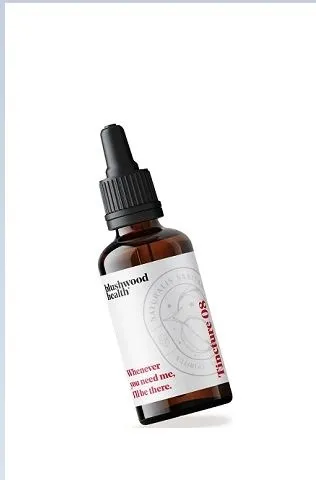D-Mannose (29th September 2021):
 D-mannose is a sugar that is similar to the more well-known glucose. It is a simple sugar that is made up of only one sugar molecule. It occurs naturally in your body and is also found in the form of starch in some plants. Fruits like cranberries, apples, oranges and peaches contain D-mannose. It is also known by names such as D-manosa, Carubinose, Seminose and Mannose. D-mannose is used to treat carbohydrate-deficient glycoprotein syndrome, a hereditary metabolic condition, and to prevent urinary tract infections (UTIs).
D-mannose is a sugar that is similar to the more well-known glucose. It is a simple sugar that is made up of only one sugar molecule. It occurs naturally in your body and is also found in the form of starch in some plants. Fruits like cranberries, apples, oranges and peaches contain D-mannose. It is also known by names such as D-manosa, Carubinose, Seminose and Mannose. D-mannose is used to treat carbohydrate-deficient glycoprotein syndrome, a hereditary metabolic condition, and to prevent urinary tract infections (UTIs).
Prevention of carbohydrate-deficient glycoprotein syndrome
Carbohydrate-deficient glycoprotein syndrome type 1b is a rare condition that is treated with D-mannose. This disease is inherited from one generation to the next. Protein is lost through the intestines as a result of this disease. D-mannose, according to some sources, helps your liver perform better by slowing down protein loss. In persons with this disease, it may also help to prevent bleeding and low blood sugar.
Prevention of UTI
90% of UTIs are caused by E. coli bacteria. These bacteria grab on to cells in the urinary tract, proliferate, and cause infection. D-mannose, according to researchers, may help treat or prevent UTIs by preventing bacteria from latching on. After consuming D-mannose-containing meals or supplements, your body excretes it through the kidneys and into the urine tract. It can attach to any E. coli bacteria that may be present in the urinary system. As a result, the bacteria are unable to connect to cells and infect them. Although there aren’t many studies on the effects of D-mannose on patients with UTIs, a few early studies suggest that it may assist. According to a study in 2013, D-mannose was tested in 308 women who had frequent UTIs. Over a 6-month period, D-mannose was about as effective as the antibiotic nitrofurantoin at avoiding UTIs. D-mannose was compared to the antibiotic trimethoprim/sulfamethoxazole in a 2014 trial in 60 women for the treatment and prevention of frequent UTIs. In women with an active infection, D-mannose reduced UTI symptoms. It was also more efficient at preventing secondary infections than the antibiotic.
cells in the urinary tract, proliferate, and cause infection. D-mannose, according to researchers, may help treat or prevent UTIs by preventing bacteria from latching on. After consuming D-mannose-containing meals or supplements, your body excretes it through the kidneys and into the urine tract. It can attach to any E. coli bacteria that may be present in the urinary system. As a result, the bacteria are unable to connect to cells and infect them. Although there aren’t many studies on the effects of D-mannose on patients with UTIs, a few early studies suggest that it may assist. According to a study in 2013, D-mannose was tested in 308 women who had frequent UTIs. Over a 6-month period, D-mannose was about as effective as the antibiotic nitrofurantoin at avoiding UTIs. D-mannose was compared to the antibiotic trimethoprim/sulfamethoxazole in a 2014 trial in 60 women for the treatment and prevention of frequent UTIs. In women with an active infection, D-mannose reduced UTI symptoms. It was also more efficient at preventing secondary infections than the antibiotic.
A prebiotic that regulates your digestive system
Prebiotics are drugs that may benefit your health by encouraging the growth of “good” bacteria in your gastrointestinal tract. According to certain investigations, D-mannose could be effective as a “prebiotic.” D-mannose components have been proven to boost the growth of “good” bacteria in lab experiments and mouse studies. This shows that D-mannose could be beneficial to patients who suffer from dysbiosis, or an imbalance of good and bad bacteria.
How will you use D-mannose?
 D-mannose is available in a variety of forms. Your form of intake should depend upon whether you’re seeking to prevent or treat an infection, the dose you require and the sort of product you’re using. It is recommended to take 2 grammes once a day or 1 gramme twice a day to avoid frequent UTIs. For patients suffering from active UTI, the recommended dose is 1.5 gramme twice daily for 3 days, then once daily for 10 days or 1 gramme three times daily for 14 days. D-mannose is available in capsules and powder form. The form you select is largely determined by your personal preferences. If you don’t enjoy taking bulky capsules or wish to avoid the fillers found in some manufacturers’ capsules, a powder may be a better option. Remember that many products only come in 500-milligram capsules. This implies that to receive the optimum dose, you may need to consume two to four capsules.
D-mannose is available in a variety of forms. Your form of intake should depend upon whether you’re seeking to prevent or treat an infection, the dose you require and the sort of product you’re using. It is recommended to take 2 grammes once a day or 1 gramme twice a day to avoid frequent UTIs. For patients suffering from active UTI, the recommended dose is 1.5 gramme twice daily for 3 days, then once daily for 10 days or 1 gramme three times daily for 14 days. D-mannose is available in capsules and powder form. The form you select is largely determined by your personal preferences. If you don’t enjoy taking bulky capsules or wish to avoid the fillers found in some manufacturers’ capsules, a powder may be a better option. Remember that many products only come in 500-milligram capsules. This implies that to receive the optimum dose, you may need to consume two to four capsules.
Side effects of consuming D-mannose
The majority of people who take D-mannose have no adverse effects, although some may develop loose stools or diarrhoea. Before taking D-mannose, see your doctor if you have diabetes. Because D-mannose is a sugar, it’s only natural to be careful. In case you have an active UTI, see your doctor as soon as possible. Although D-mannose may aid in the treatment of infections in certain persons, the research isn’t conclusive at this time. If you’re pregnant or breastfeeding, you should avoid using D-mannose because there hasn’t been enough research done on its safety in these situations.
Final Thoughts
D-mannose can be incorporated into your diet naturally by consumption of certain fruits like blueberries, cranberries, peaches, oranges and apples. It can also be consumed through supplements like tablets and powders. Those who are prone to frequent UTI problems can definitely give this a try and enjoy its benefits.
Healthboost Products:
-

Organic Whipped Tallow Cream 120ml
$34.50Add to cart -

Blushwood Berry Seed Extract EBC-46 Tincture
$120.95Add to cart -

Scalp Therapy Advanced Marine Technology Allay Organics
$48.50Add to cart -

Organic Cordyceps Militaris Evolution Botanicals
$72.99Add to cart -

Turkey Tail Mushroom Super Foods
$79.99Add to cart -

Cordyceps Mushroom Forest Superfoods
$89.00Read more
[bmi]
